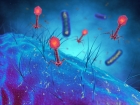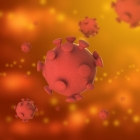What is new in Biotech
Grow a pair: Lab-grown testicles tackle infertility treatment
19.2.2024 | Press monitoring
Researchers have created lab-grown testicle organoids that closely resemble the real thing. The breakthrough provides a promising model for research that may advance our understanding of the organs' development and translate into therapeutic applications for male infertility. Organoids, lab-grown 3D mini-organs derived predominantly from stem...
Vibrio natriegens: Low-cost microbe could speed biological discovery
16.2.2024 | Press monitoring
Cornell University researchers have created a new version of a microbe to compete economically with E. coli – a bacteria commonly used as a research tool due to its ability to synthesize proteins – to conduct low-cost and scalable synthetic biological experiments. As an inexpensive multiplier – much like having a photocopier in a test tube – the...
Drug-loaded nanoparticles may prevent paralysis from spinal cord injury
14.2.2024 | Press monitoring
Sustaining a spinal cord injury (SCI) is devastating enough, but the subsequent inflammation and the damage it causes to the spinal cord can worsen the clinical outcome. This secondary injury can develop over time and lead to paraplegia or quadriplegia that may not have been present at the time of the primary injury. Research has shown that in...
Bacterias natural self-destruct mechanism used to fight infections
12.2.2024 | Press monitoring
A new study has demonstrated that a natural bacterial defense mechanism against invading viruses can be used as a weapon to combat bacterial infection. The finding opens the door to new anti-bacterial therapeutics, particularly important in the face of rising antibiotic resistance. When certain bacteria are infected by a virus, they initiate a...
Medical lab-on-a-chip runs 32 pathology tests at once
9.2.2024 | Press monitoring
Diagnosing diseases early benefits patients and doctors. It enables treatment to slow disease progression and reduces the risk of complications, thereby improving long-term health outcomes. With early diagnosis in front of mind, a team from Helmholtz-Zentrum Dresden-Rossendorf (HZDR) research laboratory in Germany has used off-the-shelf...
Inexpensive, carbon-neutral biofuels are finally possible
7.2.2024 | Press monitoring
When it comes to making fuel from plants, the first step has always been the hardest – breaking down the plant matter. A new study finds that introducing a simple, renewable chemical to the pretreatment step can finally make next-generation biofuel production both cost-effective and carbon-neutral. For biofuels to compete with petroleum,...
New molecule triggers burst of white blood cells to fight infections
5.2.2024 | Press monitoring
White blood cells are important foot soldiers in the immune system, but their numbers can be cut by health conditions or treatments like chemotherapy. Yale scientists have now discovered a molecule that can be given to quickly boost their numbers back up, to help fight off infections without antibiotics. Neutrophils are a type of white blood cell...
DNA particles that mimic viruses hold promise as vaccines
2.2.2024 | Press monitoring
Using a virus-like delivery particle made from DNA, researchers from MIT and the Ragon Institute of MGH, MIT, and Harvard have created a vaccine that can induce a strong antibody response against SARS-CoV-2. The vaccine, which has been tested in mice, consists of a DNA scaffold that carries many copies of a viral antigen. This type of vaccine,...
Nanoscale spikes 96% effective at impaling and destroying common virus
31.1.2024 | Press monitoring
Researchers have developed a silicon surface covered in nanosized spikes that is 96% effective in impaling and destroying a common virus responsible for causing respiratory illnesses, particularly in infants and young children. The technology could be used to safeguard researchers, health workers and patients from viral spread. Of the four...
Molecular jackhammers kill cancer by busting through cell walls
29.1.2024 | Press monitoring
Scientists have demonstrated an intriguing new technique to treat cancer – “molecular jackhammers” that latch onto cancer cells, then vibrate vigorously to kill them when activated by infrared light. Chemotherapy and radiation therapy are currently our most effective treatments for cancer, but they have a shotgun effect, damaging healthy cells...































